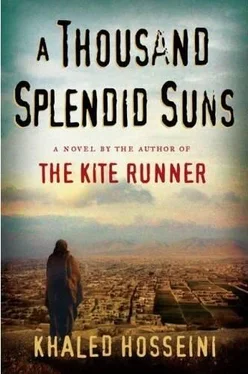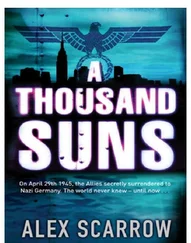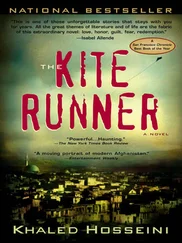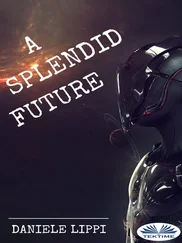"I guess some people can't be dead enough," he said.
TWO DAYS LATER, Laila woke up in the morning and found a stack of baby clothes, neatly folded, outside her bedroom door. There was a twirl dress with little pink fishes sewn around the bodice, a blue floral wool dress with matching socks and mittens, yellow pajamas with carrot-colored polka dots, and green cotton pants with a dotted ruffle on the cuff.
"There is a rumor," Rasheed said over dinner that night, smacking his lips, taking no notice of Aziza or the pajamas Laila had put on her, "that Dostum is going to change sides and join Hekmatyar. Massoud will have his hands full then, fighting those two. And we mustn't forget the Hazaras." He took a pinch of the pickled eggplant Mariam had made that summer. "Let's hope it's just that, a rumor. Because if that happens, this war," he waved one greasy hand, "will seem like a Friday picnic at Paghman."
Later, he mounted her and relieved himself with wordless haste, fully dressed save for his tumban, not removed but pulled down to the ankles. When the frantic rocking was over, he rolled off her and was asleep in minutes.
Laila slipped out of the bedroom and found Mariam in the kitchen squatting, cleaning a pair of trout. A pot of rice was already soaking beside her. The kitchen smelled like cumin and smoke, browned onions and fish.
Laila sat in a corner and draped her knees with the hem of her dress.
"Thank you," she said.
Mariam took no notice of her. She finished cutting up the first trout and picked up the second. With a serrated knife, she clipped the fins, then turned the fish over, its underbelly facing her, and sliced it expertly from the tail to the gills. Laila watched her put her thumb into its mouth, just over the lower jaw, push it in, and, in one downward stroke, remove the gills and the entrails.
"The clothes are lovely."
"I had no use for them," Mariam muttered. She dropped the fish on a newspaper smudged with slimy, gray juice and sliced off its head. "It was either your daughter or the moths."
"Where did you learn to clean fish like that?"
"When I was a little girl, I lived by a stream. I used to catch my own fish."
"I've never fished."
"Not much to it. It's mostly waiting."
Laila watched her cut the gutted trout into thirds. "Did you sew the clothes yourself?"
Mariam nodded.
"When?"
Mariam rinsed sections of fish in a bowl of water. "When I was pregnant the first time. Or maybe the second time. Eighteen, nineteen years ago. Long time, anyhow. Like I said, I never had any use for them."
"You're a really good khayat. Maybe you can teach me."
Mariam placed the rinsed chunks of trout into a clean bowl. Drops of water dripping from her fingertips, she raised her head and looked at Laila, looked at her as if for the first time.
"The other night, when he… Nobody's ever stood up for me before," she said.
Laila examined Mariam's drooping cheeks, the eyelids that sagged in tired folds, the deep lines that framed her mouth – she saw these things as though she too were looking at someone for the first time. And, for the first time, it was not an adversary's face Laila saw but a face of grievances unspoken, burdens gone unprotested, a destiny submitted to and endured. If she stayed, would this be her own face, Laila wondered, twenty years from now?
"I couldn't let him," Laila said "I wasn't raised in a household where people did things like that."
"This is your household now. You ought to get used to it."
"Not to that I won't."
"He'll turn on you too, you know," Mariam said, wiping her hands dry with a rag. "Soon enough. And you gave him a daughter. So, you see, your sin is even less forgivable than mine."
Laila rose to her feet. "I know it's chilly outside, but what do you say we sinners have us a cup of chai in the yard?"
Mariam looked surprised "I can't. I still have to cut and wash the beans."
"I'll help you do it in the morning."
"And I have to clean up here."
"We'll do it together. If I'm not mistaken, there's some halwa left over. Awfully good with chai."
Mariam put the rag on the counter. Laila sensed anxiety in the way she tugged at her sleeves, adjusted her hijab, pushed back a curl of hair.
"The Chinese say it's better to be deprived of food for three days than tea for one."
Mariam gave a half smile. "It's a good saying."
"It is."
"But I can't stay long."
"One cup."
They sat on folding chairs outside and ate halwa with their fingers from a common bowl. They had a second cup, and when Laila asked her if she wanted a third Mariam said she did. As gunfire cracked in the hills, they watched the clouds slide over the moon and the last of the season's fireflies charting bright yellow arcs in the dark. And when Aziza woke up crying and Rasheed yelled for Laila to come up and shut her up, a look passed between Laila and Mariam. An unguarded, knowing look. And in this fleeting, wordless exchange with Mariam, Laila knew that they were not enemies any longer.
Mariam
From that night on, Mariam and Laila did their chores together. They sat in the kitchen and rolled dough, chopped green onions, minced garlic, offered bits of cucumber to Aziza, who banged spoons nearby and played with carrots. In the yard, Aziza lay in a wicker bassinet, dressed in layers of clothing, a winter muffler wrapped snugly around her neck. Mariam and Laila kept a watchful eye on her as they did the wash, Mariam's knuckles bumping Laila's as they scrubbed shirts and trousers and diapers.
Mariam slowly grew accustomed to this tentative but pleasant companionship. She was eager for the three cups of chai she and Laila would share in the yard, a nightly ritual now. In the mornings, Mariam found herself looking forward to the sound of Laila's cracked slippers slapping the steps as she came down for breakfast and to the tinkle of Aziza's shrill laugh, to the sight of her eight little teeth, the milky scent of her skin. If Laila and Aziza slept in, Mariam became anxious waiting. She washed dishes that didn't need washing. She rearranged cushions in the living room. She dusted clean windowsills. She kept herself occupied until Laila entered the kitchen, Aziza hoisted on her hip.
When Aziza first spotted Mariam in the morning, her eyes always sprang open, and she began mewling and squirming in her mother's grip. She thrust her arms toward Mariam, demanding to be held, her tiny hands opening and closing urgently, on her face a look of both adoration and quivering anxiety.
"What a scene you're making," Laila would say, releasing her to crawl toward Mariam. "What a scene! Calm down. Khala Mariam isn't going anywhere. There she is, your aunt. See? Go on, now."
As soon as she was in Mariam's arms, Aziza's thumb shot into her mouth and she buried her face in Mariam's neck.
Mariam bounced her stiffly, a half-bewildered, half-grateful smile on her lips. Mariam had never before been wanted like this. Love had never been declared to her so guilelessly, so unreservedly.
Aziza made Mariam want to weep.
"Why have you pinned your little heart to an old, ugly hag like me?" Mariam would murmur into Aziza's hair. "Huh? I am nobody, don't you see? A dehati. What have I got to give you?"
But Aziza only muttered contentedly and dug her face in deeper. And when she did that, Mariam swooned. Her eyes watered. Her heart took flight. And she marveled at how, after all these years of rattling loose, she had found in this little creature the first true connection in her life of false, failed connections.
EARLY THE FOLLOWING YEAR, in January 1994, Dostum did switch sides. He joined Gulbuddin Hekmatyar, and took up position near Bala Hissar, the old citadel walls that loomed over the city from the Koh-e-Shirdawaza mountains. Together, they fired on Massoud and Rabbani forces at the Ministry of Defense and the Presidential Palace. From either side of the Kabul River, they released rounds of artillery at each other. The streets became littered with bodies, glass, and crumpled chunks of metal. There was looting, murder, and, increasingly, rape, which was used to intimidate civilians and reward militiamen. Mariam heard of women who were killing themselves out of fear of being raped, and of men who, in the name of honor, would kill their wives or daughters if they'd been raped by the militia.
Читать дальше












